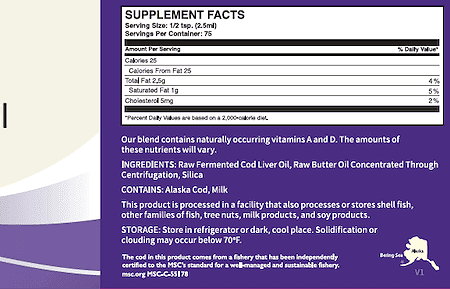How to balance hormones naturally because they are powerful messengers in our body whose responsibility is to regulate the vital processes in organs and glands.
They are the functional molecules of the endocrine system, which is a collection of glands that coordinate and secrete (release) specific hormones into the bloodstream.
The body’s ability to balance glandular secretion is dependent upon what we eat, how much we exercise, what we think, and the condition of our overall lifestyle and the daily choices we make.
While many synthetic drugs have been manufactured to artificially balance hormonal levels in our bloodstream, there are many natural ways to help our bodies regulate them that involve ingesting certain foods as well as targeting treatment to the specific gland.
Natural ways to balance hormones
The Hypothalamus
Located in our brain and near the brainstem, the hypothalamus regulates the body’s homeostasis, such as the heart rate, blood pressure, internal temperature, and links the endocrine system with the nervous system.
Some symptoms for an unhealthy hypothalamus are low blood pressure, low body temperature, and wild swings in appetite and food cravings. Eating disorders, such as overeating and unhealthy under-eating, are two very common symptoms of a hypothalamus that is not being regulated properly.
The best ways to regulate the functions of the hypothalamus are first to maintain a regular sleep schedule and not eat anything 2 to 3 hours before going to bed. The mineral chromium is very important to maintaining a youthful hypothalamic state, and the organic versions of broccoli, potatoes, green beans and garlic have high chromium levels that will help regenerate hypothalamic functioning.
The Pituitary Gland
Also located at the base of the brain and just below the hypothalamus, the pituitary gland has been called “the master gland” for its central control system-style of regulation over the other endocrine glands. It is responsible for receiving information from the hypothalamus and storing hormones secreted by the hypothalamus, secreting growth and development hormones, and regulating the reabsorption of water into the kidneys.
Since the pituitary gland is closely related to the hypothalamus, and the two are critical links to the rest of the endocrine system so many of the same natural remedies will support the health of both systems. A consistent exercise schedule that regulates metabolic rate overall and having a consistent sleep schedule are two critical behaviors that will ensure hormonal production can recharge healthily while we rest.
The Pineal Gland
Sitting behind the forehead in the position of the “3rd eye”, the pineal gland secretes melatonin which regulates our circadian rhythm, or the sleep-wake cycle. It is also the locus of extra-sensory perception, and people who have “opened their 3rd eye” are able to perceive energy beyond the reach of the five senses.
In fact, the famous esoteric symbol of eye at the capstone of the pyramid (on the back of the U.S. dollar) is a symbol for the equidistant triangle formed by connecting the two eyes with the middle of the forehead, with the third eye residing in the capstone (the highest level) of the symbolic pyramid.
Pineal function has an over-looked but important spiritual component to hormonal regulation, and with a healthy pineal gland we can naturally reduce stress and develop an higher connectivity to life around us.
Ingesting the neurotoxin fluoride over a large period of time, and which was put into many public water supplies beginning in the 1950s, creates a calcium build-up in the pineal gland, which debilitates its functionality. To de-calcify the pineal gland, the supplement MSM (methylsulfonylmethane) not only removes calcium deposits in the pineal gland but also as well as in other places throughout the body, such as in joints between bones and can efficiently treat arthritis.
The Thyroid
Located near the base of the throat, the thyroid regulates the body’s energy and metabolism. There are two basic problems associated with the thyroid: hypothyroidism (under-functioning) and hyperthyroidism (over functioning), with hypothyroidism being more common.
Since the thyroid regulates our metabolism it is also important with regulating our digestion. Specific and critical hormones related to this are called the T3 and T4 and when released into the bloodstream convert calories and oxygen into energy, which gives fuel for not only digestion but also cognition, mood regulation, and sexual drive. So when the thyroid is under-functioning common symptoms are brain fog, persistent fatigue, and weight gain.
Iodine and selenium are nutrients that the thyroid uses to convert into T3 and T4 hormones, so adding seaweed, kelp and raw dairy to your diet for the thyroid will alleviate symptoms, and foods high in selenium such as Brazil nuts, spinach, grass-fed beef liver, and sardines will also boost production of these metabolizing hormones.
Pancreas
The pancreas is located just below the stomach and is responsible for releasing enzymes into the stomach during digestion to break down carbs, proteins and fats into smaller absorbable molecules, as well as releasing two hormones called insulin and glucagon which regulate blood glucose levels.
A common symptom of a malfunctioning pancreas is severe pain in the abdominal region, which makes it difficult to eat and drink, and thus malnutrition results. Over the long term this is called chronic pancreatis.
Sour fruits such as lemon and lime stimulate the secretion of pancreatic enzymes and help digestion, and drinking water with lemon has have been known to support the long-term health of the pancreas. But the main way to avoid pancreatic problems is reducing sugar from your diet, because the body produces extra insulin in order to release the sugar into the muscles for fuel. But over time the cells that produce the insulin get worn down and insulin deficiency occurs, which is diabetes, and can have major health defects and can force serious lifestyle changes.
Ovaries/Testes
The ovaries in women and the testes in men are the release hormones that are responsible for blood circulation, sex drive, and mental vigor. The ovaries specifically produce two hormones called estrogen and progesterone, which regulate the other internal organs of the female reproductive system. The testes secrete testosterone, which drives the libido of males, as well as physical muscular development and bone density.
Vitamin D has been shown to drastically increase testosterone levels in males, so either swallowing as a supplement or taking some sun everyday, this is a quick and proven way to boost testosterone naturally. Healthy fats, in avocado and avocado oils, have also been shown to not only regulate the overall hormonal balance but specifically in the testes in men.
When estrogen levels are out of balance in females mood swings, depression, insomnia and stress-related ailments are common. Many plastics, detergents, makeup products, shampoos and soaps contain synthetic forms of estrogen, so it is important to reduce contact with these for both males and females, as they will cause confusion and under/over secretion of estrogen that will disrupt other vital processes.
Intermittent fasting up to 24 hours has been shown to stabilize and regulate both testosterone and estrogen production, and has numerous other self-regulating benefits. Once a week is optimal, and may help the body rest and reset the hormonal routine.
Conclusion
The endocrine system is a complex and fascinating information distribution system within our bodies.
Problems that seem to originate in one place, for example the mind or in the stomach, are actually rooted in out of balance hormones that are regulating how the body is dealing with its needs, such as with stress or hunger.
Thus it is important to understand each level of the endocrine system and how an all-natural diet and consistent exercise, while avoiding synthetic forms of hormones in prescription medication and other mass produced products, is the tried and true technique to make sure that our hormones stay in check.


























